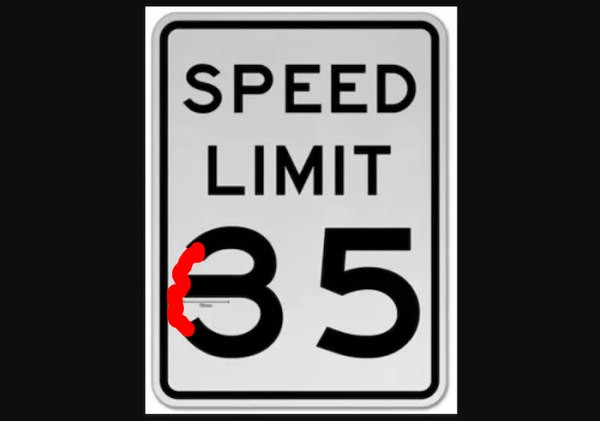A new, overcomplicated step towards road safety
ISA, a.k.a. car safety made complicated. And fragile.

A “new, great step forward for street safety”: that is how an italian newspaper just announced that a new speed control system will become mandatory for all new cars in two phases, between today and July 7th, 2024.
That system is the one called Intelligent Speed Assistance (ISA), which “is expected to reduce collisions by 30% and deaths by 20%."
To limit speed, ISA uses “a speed sign-recognition video camera and/or GPS-linked speed limit data to advise drivers of the current speed limit and automatically limit the speed of the vehicle as needed”.
Road safety, good. ISA and unexplicable omissions, not so much
Greater road safety is great, but solutions like ISA beg several questions.
The first may be: is this a sensible reason to fill all cars with even more polluting electronics? In a moment when chip scarcity is common in the car industry?
But that is a minor issue. Think about this: if studies conclude that the maximum safe speed on normal road is “X” km/hour, why in the world should a sentient species be so stupid to allow on public streets anything that can go faster than that?
But, my Ferrari!
Indeed, ISA has other uses (more on this below), but before ISA, why aren’t carmakers forbidden from making cars for street usage that can physically go faster than “X”? Seriously: why?

Yes, of course if ISA will be impossible to override it will - as that article puts it - “make it impossible to drive faster than 130 KM/h (in Italy), thus issuing a de-facto death sentence for the luxury car market”.
Hmm, sure, but… So WHAT? And how could it be otherwise?
A world where the rich can, on top of all the other amenities, even drive straight through the peones, but faster is a world where the rich would unavoidably kill some peon once in a while, exactly because they can drive faster than the rest of us. That would be a bit too unequal to swallow, even in an age like this, wouldn’t it now?
Besides, this is a non-issue. The moment cars driving over e.g. 130 km/h become illegal on public streets, the rich who really need to show off can, and will, go back to ebony horse carriages.
But speed is fun!!! Honest fun!
Sure. Driving can be great, innocent fun. I acknowledge that. But no problem.
Wanna sell, or drive, cars that can go 300 km/h or faster? Again, NO problem. Just make it illegal to even turn on such cars outside closed car tracks, just like other great hobbies like archery or target shooting are allowed only inside shooting ranges. Then get a membership of the closest racing track for dragsters, among the ones that would surely spring up like mushrooms up everywhere:

But ISA is different!!!
Indeed, even in a sane world where cars would be physically unable to go any faster than that maximum “X” speed limit, systems like ISA would have a lot of work to do. There are countless places or situations where the maximum allowable speed must be, permanently or not but for excellent reasons, much less than the theoretical “X”.
And yes, ISA is conceived exactly to read the corresponding road signs, and always act accordingly to them. Theoretically, that is.
But our world is a world where, even if the driverless pipe dreams that carmakers are pushing to achieve their own demise did become a reality (they couldn’t):

- all it will take to make an ISA-controlled car to drive 80 km/h FASTER than the speed limit is a piece of tape
- it will be equally easy to set up FAKE road signs that “reliably fool the vision systems used by cars”: attach those signs to “terrorist” drones and chaos is granted
- (this may be an italian-only problem, but still…) wherever cash-strapped city administrations place AUTHENTIC, but ridiculously low speed limit signs, ONLY as a pretext to issue more speeding tickets, ISA-controlled cars would screech to a halt, causing pileups
The silver lining? LESS cars, at last
With any luck, the issues above may make cars even less glamorous than they are already becoming anyway. ISA speed controls, that is, may accelerate public demand for transit. Fingers crossed.
Who writes this, why, and how to help
I am Marco Fioretti, tech writer and aspiring polymath doing human-digital research and popularization.
I do it because YOUR civil rights and the quality of YOUR life depend every year more on how software is used AROUND you.
To this end, I have already shared more than a million words on this blog, without any paywall or user tracking, and am sharing the next million through a newsletter, also without any paywall.
The more direct support I get, the more I can continue to inform for free parents, teachers, decision makers, and everybody else who should know more stuff like this. You can support me with paid subscriptions to my newsletter, donations via PayPal (mfioretti@nexaima.net) or LiberaPay, or in any of the other ways listed here.THANKS for your support!